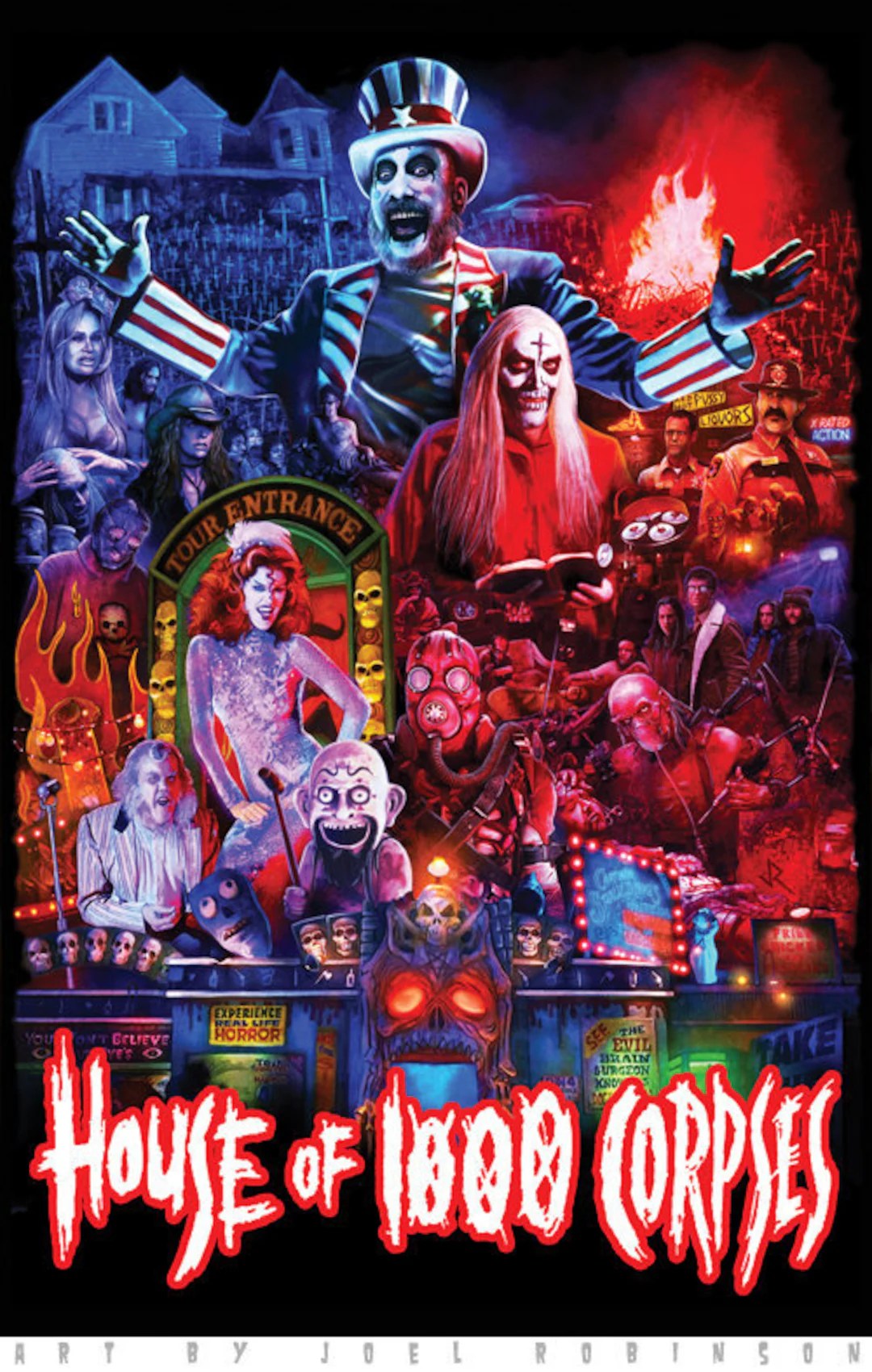Exploring Rob Zombie's Firefly Family Saga
Ever wonder what happens when a horror rockstar turns filmmaker? Rob Zombie, known for his macabre music, brought his twisted vision to the big screen with the Firefly family saga, a trilogy of horror films beginning with House of 1000 Corpses. This exploration delves into this controversial and gruesome cinematic journey, examining its origins, impact, and enduring fascination for horror fans.
The Firefly family, a clan of sadistic backwoods killers, burst onto the scene in 2003 with House of 1000 Corpses. This debut film introduced audiences to Captain Spaulding, Otis Driftwood, Baby Firefly, and Mother Firefly, characters who would become synonymous with Zombie's unique brand of horror. The film's grainy aesthetic, over-the-top violence, and homage to classic exploitation films quickly garnered a cult following.
The Devil's Rejects, the second installment released in 2005, shifted the focus from the haunted house setting to a gritty, on-the-road narrative. The Firefly siblings, having escaped the authorities, embark on a violent rampage across the American Southwest. This film solidified Zombie's directorial style and further developed the Firefly family's disturbing dynamic.
The trilogy concluded in 2019 with 3 From Hell, which followed the surviving Firefly members after a decade-long imprisonment. This final chapter continued the saga's exploration of violence and family loyalty, while also introducing new characters and expanding the Firefly mythology.
The Firefly trilogy has been a source of both fascination and controversy since its inception. Critics have debated its artistic merits, with some praising its stylistic choices and homage to grindhouse cinema, while others condemn its graphic violence and nihilistic themes. The films have faced censorship issues in various countries and sparked discussions about the boundaries of horror in film.
Rob Zombie's inspiration for the Firefly family and their gruesome exploits draws heavily from classic exploitation films of the 1970s, like The Texas Chain Saw Massacre. He aimed to create a modern take on the genre, injecting his own signature blend of rock and roll aesthetics and dark humor.
The trilogy's impact on the horror genre is undeniable, influencing a wave of filmmakers who embraced its gritty aesthetic and over-the-top violence. The Firefly family has become a modern horror icon, with Captain Spaulding, Otis, and Baby Firefly entering the pantheon of memorable villains.
Advantages and Disadvantages of the Firefly Trilogy
| Advantages | Disadvantages |
|---|---|
| Unique and stylized visuals | Excessive and gratuitous violence |
| Memorable and disturbing characters | N nihilistic themes and lack of depth |
| Homage to classic exploitation cinema | Can be polarizing for viewers |
One of the frequently asked questions surrounding the trilogy is whether the films are connected. Yes, they form a continuous narrative following the Firefly family's exploits.
Another common question is whether the films are based on a true story. No, the Firefly family and their story are entirely fictional.
In conclusion, the Rob Zombie House of 1000 Corpses trilogy, encompassing The Devil's Rejects and 3 From Hell, is a significant entry in modern horror cinema. While controversial for its extreme content, the trilogy undeniably holds a place in the genre, influencing filmmakers and providing a unique viewing experience for fans of gritty, over-the-top horror. The Firefly family, despite their horrific actions, have become iconic figures in the horror landscape, sparking discussions and debates that continue to this day. While not for the faint of heart, the trilogy offers a fascinating and disturbing look into the mind of Rob Zombie and his particular brand of cinematic horror. If you are a fan of exploitation cinema and can stomach the extreme content, the Firefly saga is undoubtedly an experience worth exploring, but proceed with caution.
Champagne gift baskets shipped the perfect way to celebrate
The enduring allure of blonde hair anime characters boy a deep dive
Beyond rote memorization the enduring allure of beautiful multiplication charts














